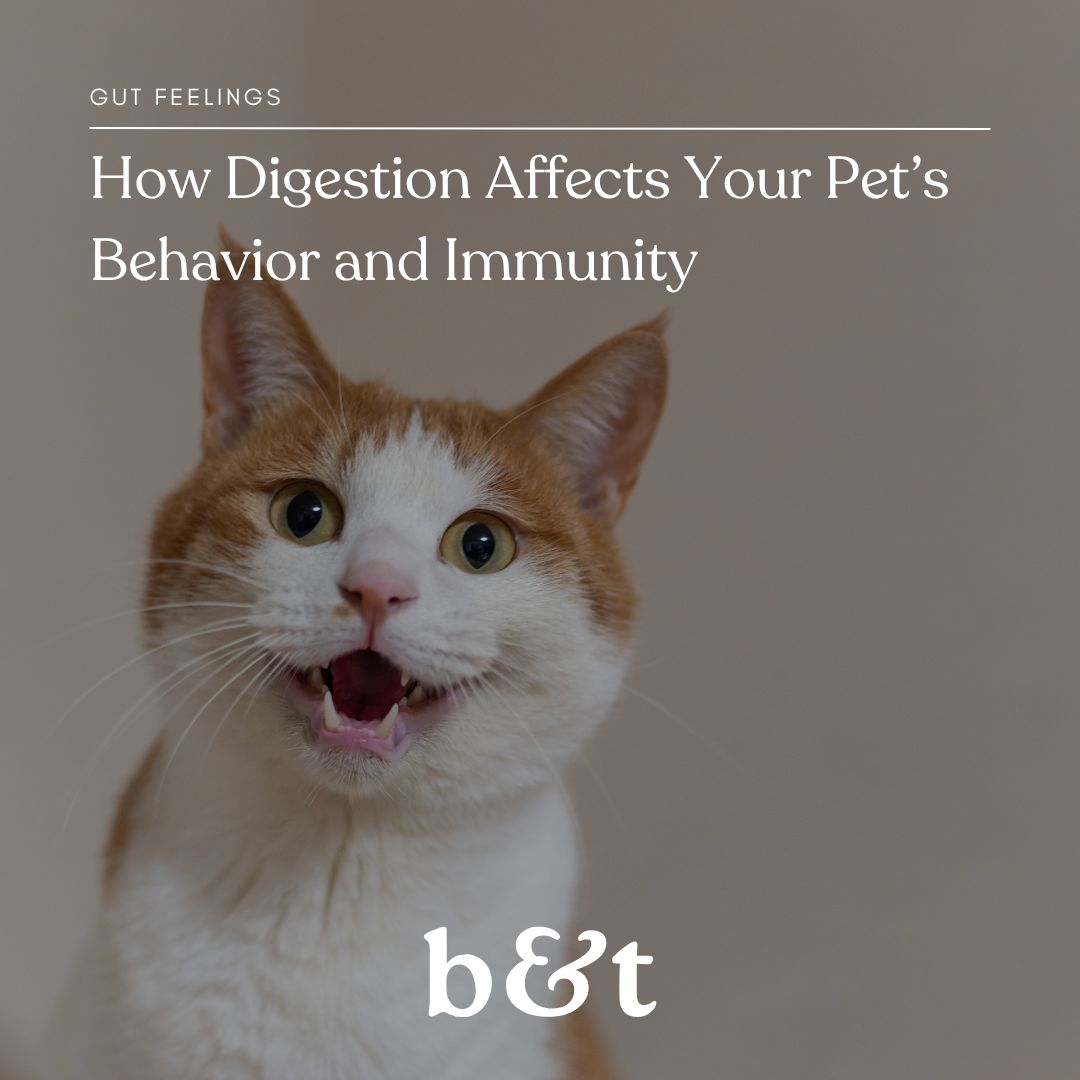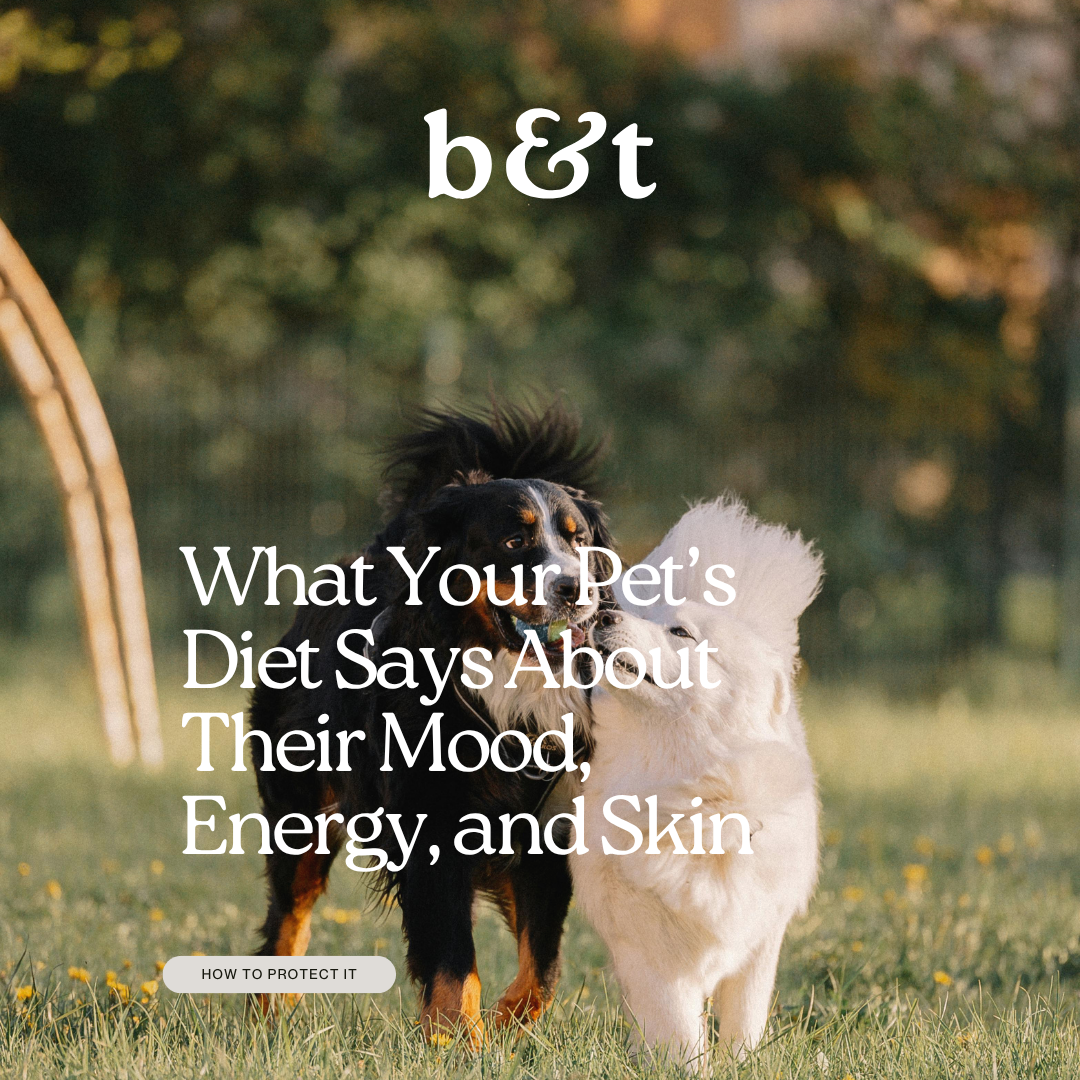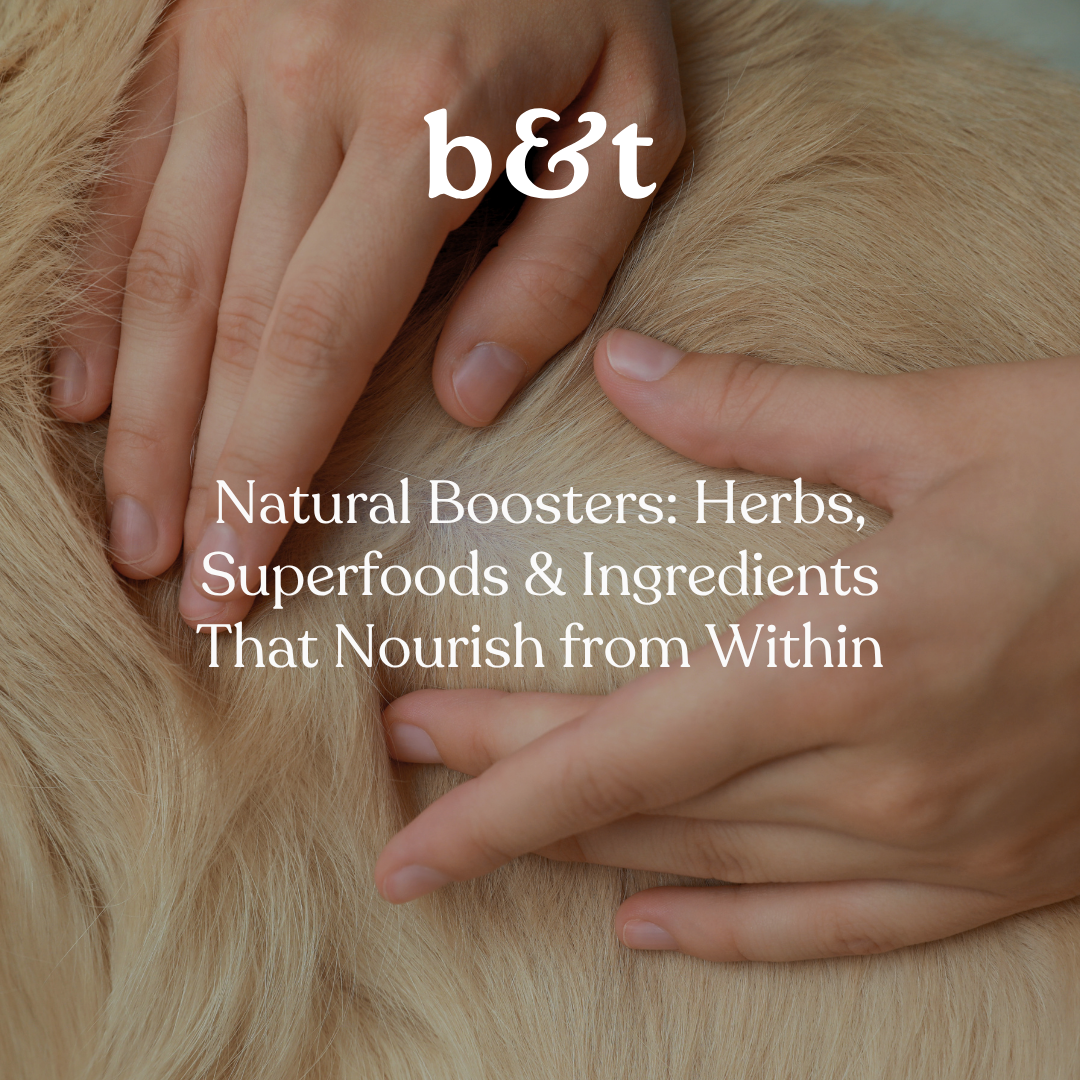
How Digestion Affects Your Pet’s Behavior and Immunity
We often think of digestion as something physical — what goes in, gets processed, and comes out. But in cats and dogs, the gut is far more than a system. It’s a communicator. A mood regulator. An immune warrior. And yes — a mirror to how your pet really feels.
At Beats and Tails, we believe that wellness begins from the inside out. That the food we give, the routines we build, and the way we care for our pets day to day can nurture not only their bodies, but their behavior and long-term health.
Let’s talk about the gut — and why it might be the key to your pet’s calm, joy, and resilience.
The Gut–Brain–Immune Connection
Inside your pet’s belly lives a delicate ecosystem of bacteria, enzymes, and microbes — often called the gut microbiome. This microbiome isn’t just for digestion. It plays a powerful role in:
-
Mood regulation (via the gut-brain axis)
-
Stress and anxiety responses
-
Immune defense and inflammation
-
Nutrient absorption, energy levels, and coat health
When their gut is out of balance, it shows — not just in their digestion, but in their behavior.

Common Signs of Gut Imbalance
Your pet might be trying to tell you something, even without words. Some subtle red flags:
-
Digestive issues (gas, bloating, loose stool, or constipation)
-
Excessive licking or paw chewing
-
Itchy skin or dull coat
-
Frequent infections or slow healing
-
Changes in mood: agitation, reactivity, or withdrawal
-
Picky eating or sudden food sensitivities
Trust your intuition. If they’re not quite themselves, their gut may be speaking for them.
How Gut Health Affects Behavior
A healthy gut helps regulate serotonin — the “feel-good” hormone — which affects your pet’s:
-
Calmness during grooming or walks
-
Ability to cope with change or new people
-
Reactivity to loud noises or separation
-
Overall emotional balance
If your pet has become more irritable or anxious, supporting their digestive system can be a gentle and natural first step.
Supporting Their Gut, Gently
You don’t need to overhaul their diet overnight. Here are small, intentional shifts that can make a big difference.
1. Feed Whole, Digestible Ingredients
Look for food made with real protein, clean carbohydrates, and minimal fillers. Avoid unnecessary additives, dyes, or “mystery” meats.
2. Add a Boost of Fiber or Prebiotics
Natural fibers like pumpkin, sweet potato, or inulin can support digestion and feed good bacteria.
3. Consider Probiotics
Vet-approved probiotics can restore balance in your pet’s microbiome, especially after antibiotics or illness.
4. Watch Their Stress Levels
Stress directly impacts digestion. Keep routines consistent and grooming rituals calm.
5. Hydrate, Always
Moisture matters. Ensure access to clean water and consider adding water-rich foods (like bone broth or hydrating treats).
Listen to Their Gut
Your pet’s digestive health is more than a wellness trend — it’s a window into how they move through the world.
When the gut is in balance, the body can rest. The mind can soften. The tail can wag freely.
 Because feeling good inside creates space for joy outside — and that’s what we all want for those we love.
Because feeling good inside creates space for joy outside — and that’s what we all want for those we love.


